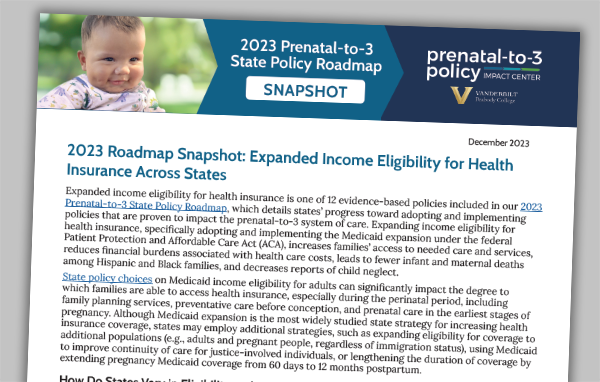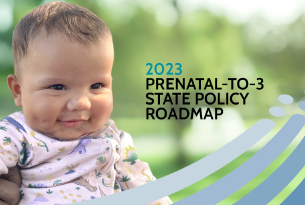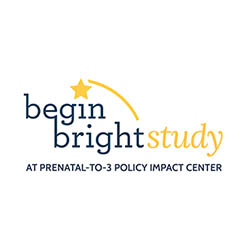Expanded income eligibility for health insurance is one of 12 evidence-based policies included in our 2023 Prenatal-to-3 State Policy Roadmap, which details states’ progress toward adopting and implementing policies that effectively improve child and family wellbeing.
State policy choices on Medicaid income eligibility for adults can significantly impact the degree to which families are able to access health insurance, especially during the perinatal period, including for family planning services, preventive care before conception, and prenatal care in the earliest stages of pregnancy.
In 2023, nine states introduced legislation to expand Medicaid under the ACA. Of those, one state successfully enacted legislation, and another implemented Medicaid expansion following a successful ballot initiative. Several states also took action to improve access to health insurance, such as lengthening the duration of pregnancy Medicaid coverage from 60 days to 12 months postpartum and extending coverage to additional populations.

Read the brief for more details on state progress.
The recently updated Prenatal-to-3 State Policy Roadmap provides insight into the core policy levers and further illustrates their interplay through vivid graphics, showcasing the variation in Medicaid policies across states.




